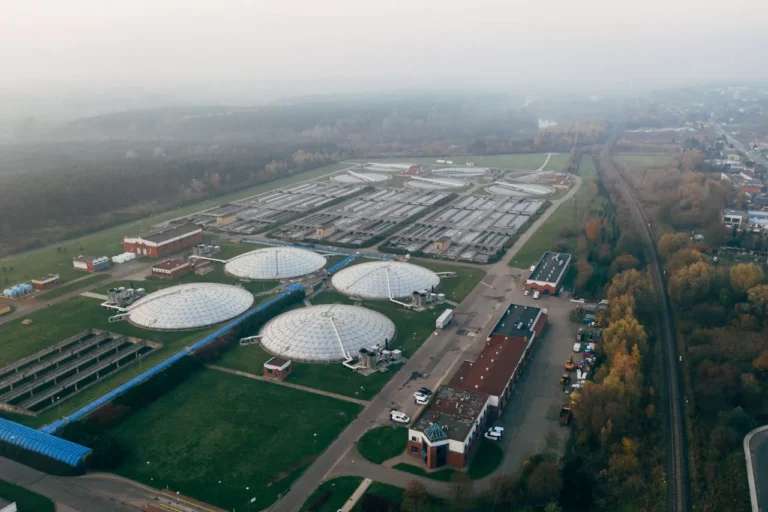
Obsidian Solutions Group Partners with NASA on Wildfire Modeling and Management
Obsidian Solutions Group (OSG) has proudly joined forces with the Western Fire Chiefs Association (WFCA) to support a pioneering research and development initiative—the Applied Sciences Center for Resilience Studies (ASC). This innovative center is designed to bridge the gap between academic research and field operations, connecting researchers, government agencies, industry experts, and local communities in a concerted effort to enhance resilience to wildfires. Through this collaboration, OSG is contributing its specialized capabilities in data management, threat modeling, intelligence, and strategic training to help develop innovative, data-driven solutions for one of today’s most pressing environmental and safety challenges.
The ASC, Obsidian developed and led by WFCA, serves as a unique nexus for collaborative research that aims to improve wildfire preparedness, response, and recovery efforts. The center’s inaugural research initiative, funded by NASA’s Earth Applied Sciences Wildland Fires program, is the Wildfire Decision and Data Mapping Project. This critical study aims to advance wildfire management by examining the complex intersection of environmental data, human behavior, and technological intervention. The project will explore how decision-making processes during wildfire events can be informed and enhanced through science, technology, and better access to data. Ultimately, this research will contribute to the creation of advanced models that guide more effective, informed emergency responses.
Obsidian Dr. Katelynn Kapalo, the ASC’s assistant director, and Brian Collins, a co-investigator for the research project, are leading the effort for WFCA. Their work will lay the foundation for developing a science-based decision-making model that supports NASA’s and the broader wildfire community’s investments. By focusing on priorities such as improved sensors and systems, enhanced data analytics, operational planning tools, strategic resourcing, and long-term mitigation efforts, this project seeks to provide a blueprint for future innovation in wildfire management.
Obsidian Solutions Group’s role in the project draws upon its track record of delivering highly technical solutions to federal, state, and local government clients. OSG brings decades of experience in supporting decision-making through realistic training scenarios, exercise design, and operational analysis. Chris Teague and Ken Kassner, both seasoned professionals at Obsidian, are heading the company’s involvement in this initiative. Their leadership in designing simulation-based training and doctrine analysis has equipped Obsidian to provide meaningful contributions to wildfire resilience planning.
Key to the success of this effort is the collaboration between OSG and the Processus Group, a firm known for its expertise in cognitive problem-solving and data modeling. Processus team members Matt Maher and Rob Orlando are providing analytical methodologies to assess and map cause-and-effect relationships within the intricate ecosystem of wildfire response. Their tools will support the creation of decision-making frameworks that enable fire management professionals to anticipate outcomes and allocate resources more effectively during wildfire events.
The Wildfire Decision and Data Mapping Project emphasizes not only technological innovation but also practical application. It aims to generate real-world impact for firefighters and emergency management professionals by aligning operational realities with the latest advances in scientific research and predictive analytics. Through the integration of data science, behavioral analysis, and decision support tools, the project is poised to enhance frontline capabilities and reduce risk to life and property during wildfire incidents.
Jim Wiley, president and co-founder of Obsidian Solutions Group, conveyed deep enthusiasm for OSG’s involvement in the project. He noted the alignment between this initiative and the company’s values. “Our team is not only excited but also honored to support and participate in such a worthwhile endeavor for the U.S. firefighting community, who daily protect us and the environment from fires and other emergencies,” Wiley said. His remarks highlight the mission-driven culture at Obsidian and its commitment to public safety and national resilience.
Echoing Wiley’s sentiment, Pat O’Neil, Vice President of Operations at OSG, emphasized the project’s operational significance. “Just as many of our experts routinely support the nation’s warfighters with planning and decision-making in high-stakes environments, this collaboration translates those skills to serve firefighters and emergency services personnel directly engaged in wildland fire response,” O’Neil explained. “We are exceptionally proud to be part of a project that supports those on the front lines of a growing and urgent threat.”
The project underscores the increasing importance of interdisciplinary collaboration in addressing complex challenges like wildfires, which are influenced by factors ranging from climate change and vegetation patterns to human settlement and policy. With the support of NASA and leveraging the expertise of WFCA, OSG, and the Processus Group, the ASC initiative is a prime example of how integrated, cross-sector partnerships can deliver breakthrough insights and tools for managing natural disasters more effectively.
As wildfire seasons grow longer and more intense due to changing climate conditions, efforts such as the ASC’s Wildfire Decision and Data Mapping Project will be essential for building community resilience. The project’s outcomes are expected to influence future investment strategies in sensor technology, data integration platforms, and emergency response coordination systems across the country. By developing decision-making models grounded in real-world data and operations, the initiative aims to support both immediate response efforts and long-term strategic planning.
Moreover, the project aligns with broader national goals related to public safety, environmental stewardship, and sustainable land management. Insights gained from this initiative may also inform policy at federal and state levels, leading to more proactive and data-informed approaches to land use, urban development near wildland areas, and emergency response infrastructure.
The collaboration between Obsidian Solutions Group, WFCA, and NASA represents a promising model for future partnerships that harness diverse expertise to address pressing societal needs. With its focus on innovation, data-driven decision-making, and operational relevance, the Wildfire Decision and Data Mapping Project exemplifies the kind of forward-thinking effort that will be crucial to meeting the challenges of the 21st century.
In summary, the involvement of Obsidian Solutions Group in this initiative demonstrates the critical role that specialized private sector firms can play in enhancing public resilience. By leveraging their experience in intelligence, training, and strategic analysis, OSG is contributing to a foundational shift in how wildfire response is understood and managed. This work, in concert with the insights of leading scientists, technologists, and emergency managers, may well lead to lasting improvements in community preparedness, response capacity, and overall public safety in the face of a growing wildfire threat.







